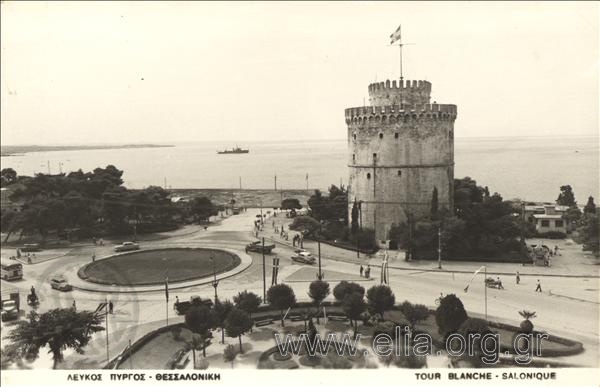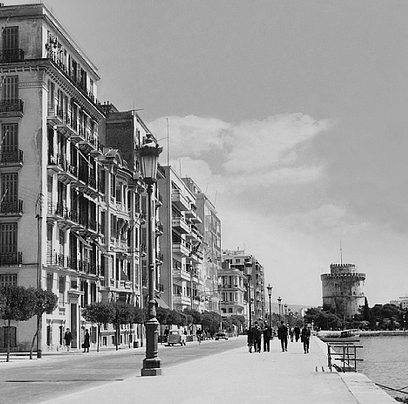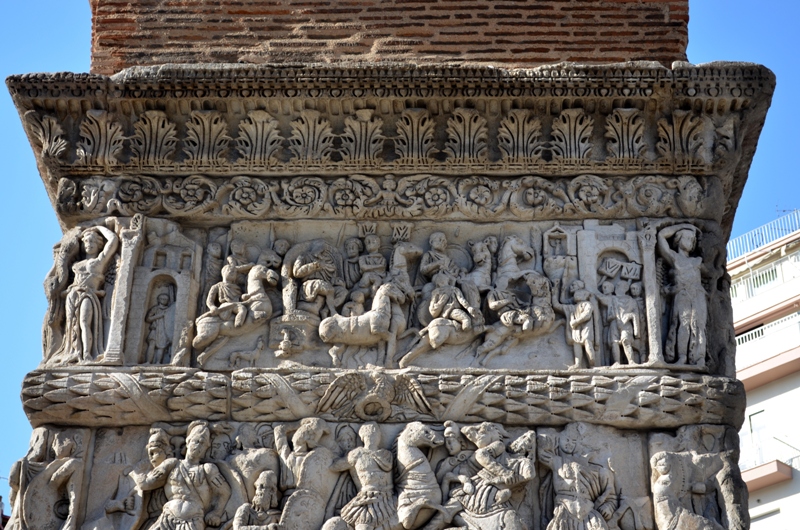We are always trying to improve the professional development experience for our teachers so your comments and evaluation for this event are very important to us.
Thank you for taking the time to fill out the next feedback questionnaire:

Day 1
What is Cultural Heritage - Hellenic NSS
eTwinning and Cultural Heritage - CSS
BRINGING DIGITAL CULTURAL HERITAGE IN EDUCATION
Day 2
Inspirations for activities in projects on cultural heritage Gracjana Więckowska
Mountain Athos-Ways to design, implement and diffusion heritage projects Apostolos Paraskevas
My game, your game, our game: Let’s play interculturally Virginia Arvanitidou
Teaching with Europeana: how to create engaging lessons with digital cultural content Milena Popova
Thessaloniki, the city of masterpieces of art - Integrating collaborative activities on the topic of cultural heritage in eTwinning projects Theodora Gkeniou
Make your eTwinning project come to life using Virtual Reality photos Gary Shiells
“Statue and the city”: connecting Europe, building identities through art in public spaces Eleni Svoronou
Make your eTwinning project results a master piece Claire Morvan
The network of European School Radio: Participate in the new application for students’ radio productions around Europe Anastasios Vafiadis
Flying with the wings of Mythology through time and space Anastasia Kourentzi - Maria Batsiou
PORTrait of an Urban Space Despina Daravingou
Digital tools to bring cultural heritage to life Bart Verswijvel
Intangible cultural heritage: valuable educational tool for strengthening our common European identity Evlampia Kousidou
Day 3
Travelling in Greece through dancing Haralampos Theodorakos
Highlighting the Cultural Heritage through digital mapping Xanthi Albanaki
Cultural heritage, citizenship and Inclusion, how does eTwinning bridge those concepts? Panel Discussion - Claire Morvan
Cultural heritage has a universal value for us as individuals, communities and societies. It is important to preserve and pass on to future generations. You may think of heritage as being ‘from the past’ or static, but it actually evolves though our engagement with it. What is more, our heritage has a big role to play in building the future of Europe. That is one reason why we want to reach out to young people in particular during the European Year.
Cultural heritage comes in many shapes and forms.
- tangible – for example buildings, monuments, artefacts, clothing, artwork, books, machines, historic towns, archaeological sites.
- intangible – practices, representations, expressions, knowledge, skills - and the associated instruments, objects and cultural spaces - that people value. This includes language and oral traditions, performing arts, social practices and traditional craftsmanship.
- natural – landscapes, flora and fauna.
- digital – resources that were created in digital form (for example digital art or animation) or that have been digitalised as a way to preserve them (including text, images, video, records).
Through cherishing our cultural heritage, we can discover our diversity and start an inter-cultural conversation about what we have in common. So what better way to enrich our lives than by interacting with something so central to who we are?
Cultural heritage should not be left to decay, deterioration or destruction. This is why in 2018, we search for ways to celebrate and preserve it.
More info: https://europa.eu/cultural-heritage
Τransfer regarding the arrival-departure you may contact:
Travel agency: Fastravel
+302610622500
emergency contact m. +306974777755
e-mail: Αυτή η διεύθυνση ηλεκτρονικού ταχυδρομείου προστατεύεται από τους αυτοματισμούς αποστολέων ανεπιθύμητων μηνυμάτων. Χρειάζεται να ενεργοποιήσετε τη JavaScript για να μπορέσετε να τη δείτε.
History:
Thessaloniki (520 km. north of Athens) is the second largest city of Greece and the most important centre of the area. Built near the sea (at the back of the Thermaïkos Gulf), it is a modern metropolis bearing the marks of its stormy history and its cosmopolitan character, which give it a special beauty and charm .

The city of Thessaloniki Greece was founded in 315 BC by king Cassander of Macedonia. It got its name from Thessaloniki, wife of Cassander and half-sister of Alexander the Great, who, in turn, was named like that after her father, king Phillip II of Macedonia, to commemorate his victory over the Phocians with the help of Thessalian horsemen. Thessaloniki, in greek, actually means the "victory of the Thessalians".

Thessaloniki's history spans some 2,300 years. An important metropolis by the Roman period, Thessaloniki was the second largest and wealthiest city of the Byzantine Empire. Thessaloniki is home to numerous notable Byzantine monuments, including the Paleochristian and Byzantine monuments of Thessaloniki, a UNESCO World Heritage Site, as well as several Roman, Ottoman and Sephardic Jewish structures. The city's main university, Aristotle University, is the largest in Greece and the Balkans.
Sightseeing:
You can visit:
- The northernmost Byzantine walls of the city and parts of the western walls
- The city's symbol - the White Tower, one of the 16th c. AD fortified towers - which is the only surviving tower on the seafront
- The upper town for its traditional old houses, small cobbled streets, Byzantine citadel, the Eptapyrgion fort.
- The Byzantine churches built between the 5th and 14th century, such as Agios Demetrios, (7th c.) and Agia Sophia (Holy Wisdome, 9th c.), and many lovely smaller ones in the upper town (St Nicolaos Orfanos is particularly worth a look for its frescoes), which are on the UNESCO World Heritage List.
- The traditional central food market, with hundreds of stalls selling meat, fish, fruit, vegetables, cheap clothes and shoes, flowers, herbs and spices, between Aristotele Square and Venizelou street.
- Aristotelous Square-the biggest of the city-and the promenade with its cafes and restaurants.
Professional Development Workshop (PDW)
«Building the future of Europe through Cultural Heritage»
Place: Thessaloniki, Greece
Venue: Themet Hotel
Dates: 19, 20, 21 April 2018
Target group: Teachers of secondary education (age group 12-18)
Hashtags: #eTwforCulture, #eTwinning
Please note before registering!
Only teachers confirmed by the NSS may be registered to the conference.
* For teachers from Greece there are limited seats available.
The main objectives of the PDW are to:
- Combine issues of Cultural Heritage with education and highlight how students can discover and engage with Europe's cultural heritage and reinforce a sense of belonging to a common European space.
- Prepare teachers to exploit the potential of Cultural Heritage in schools and in their eTwinning activities.



